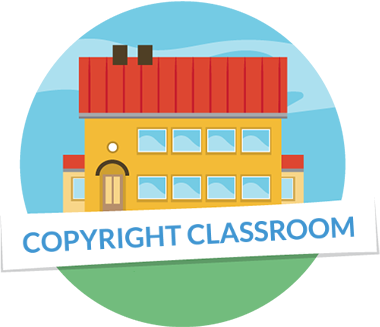Mini-play or mini-film project
In the mini-play or mini-film project, the aim is to learn about copyright and review copyright knowledge through drama, creative writing, and information gathering as well as develop creative skills. Through drama, students can identify with creators in a variety of situations.
This project ties into the NCCA’s Senior Cycle Key Skills: information processing, communicating, being personally effective, working with others, and critical and creative thinking (see Objectives below).
Tip:
Instead of a mini-play, students can create a mini-film, animation, or simply a script based on one of the six scenarios. The play can also be performed in a foreign language as part of language learning.

Time: 2–3 lessons per scenario
Lesson 1: Planning and improvising to develop the script for the mini-play/film
Lesson 2: Rehearsing, or filming and editing
Lesson 3: Performance of the play(s) or screening of the film(s)
Objectives:
- To practise finding information, creative writing, and applying copyright knowledge.
- To develop critical thinking and understanding contrary points of view.
- To practise working in groups and develop social skills.
- To foster a sense of community and team spirit.
- To learn to perform and to be an audience.
The project can be carried out as a collaboration between different subjects/departments. It is particularly well-suited for the subjects of language and literature, social studies, arts, and music.
Instructions for teachers
Form groups of 3-5 students that will each create a mini-play or film.
Assign scenarios and roles:
- Each group can be randomly assigned a scenario and roles for each member using the play creator. To ensure each group receives a unique scenario, the selection process should be done on the same device with the whole class at the same time. The play creator can be found here or in the video room.
- Alternatively, you can assign students to pre-formed groups and give them a scenario and roles yourself, or allow the students to assign roles themselves. The selection can also be done by picking a slip with the scenario and roles from a hat or bowl.
- There are a total of six different scenarios involving issues around the rights of creators, each with 5 different roles. Some of the roles are more peripheral, so groups of 3 or 4 would also work. The scenarios and roles can be found here.
- While it is good if each group has a unique scenario to work with, if there are more than six groups, multiple groups can perform a play based on the same scenario, and each group can have up to 5 students. Students can also change the characters’ names, or create their own characters for the play provided the key issues relating to intellectual property are maintained.
- Distribute scenario cards: Print out the scenario cards in advance and distribute them to each group. The cards describe the situation, location, and roles.
- Scriptwriting: The students collaboratively create the script for the play/fim. A mini-play or film can be, for example, 5–10 minutes long.
- The intention is to address intellectual property issues within the play. The script should consider what intellectual property means to creators and others in the creative industries and how the actions and behaviour of the characters impact the different people in the play.
- The students can research copyright while writing the script. Information on copyright can be found on the Copyright Classroom website.
- Post-performance discussion: After the performance, it is beneficial to discuss any ethical, copyright and other issues related to the play. Topics could include what creativity and originality mean, the importance of copyright to people in the creative industries, how students themselves could benefit from copyright, and how to respect the intellectual property of others. Discussion points specific to each play have been prepared for you.
- Acknowledging the students’ work: Each play is a unique manuscript created by the students. The creators have copyright in their work.
Additional Resources: Checklists for Film Project and Animation Project
Instructions for students
Create a mini-play based on the given scenario. Consider the following:
- What happens in the course of unfolding events?
- How might the scenario affect different people?
- What should the characters consider before they take action?
- What could the characters do differently?
Pay particular attention to what happens from the perspective of the characters’ intellectual property. You can search for information about copyright on the Copyright Classroom website.
You can come up with a title for your play and also change the characters’ names if you wish.
